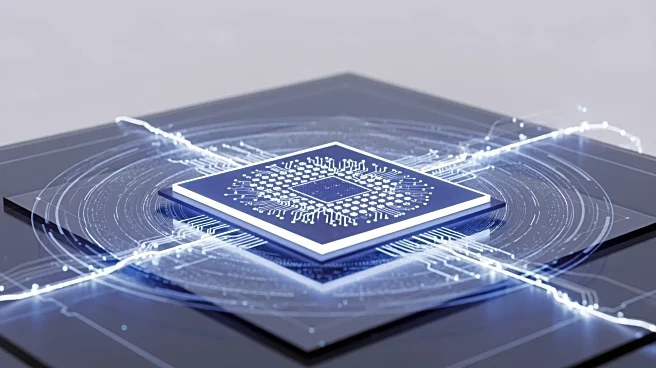What's Happening?
MIT researchers have made significant progress in the field of superconductivity by observing unconventional superconductivity in 'magic-angle' twisted tri-layer graphene. This discovery marks a step toward
developing room-temperature superconductors, which could revolutionize technology by enabling more efficient energy grids and advanced quantum computers. The research, published in Science, provides direct evidence of unconventional superconductivity, offering insights into new mechanisms that could lead to practical applications.
Why It's Important?
The development of room-temperature superconductors has the potential to transform various industries by eliminating energy loss in electrical systems. This breakthrough could lead to more efficient power grids, reducing costs and environmental impact. Additionally, it could enhance the capabilities of quantum computers, driving advancements in computing power and data processing. The implications for technology and energy sectors are profound, with potential benefits for both economic growth and sustainability.
What's Next?
Following this discovery, MIT researchers plan to further investigate the properties of magic-angle graphene and other two-dimensional materials. Their goal is to identify new candidates for superconductors that operate at room temperature. This research could pave the way for designing materials with tailored electronic properties, leading to innovations in energy and computing technologies. Continued collaboration with other institutions and funding from scientific organizations will support the advancement of this promising field.










